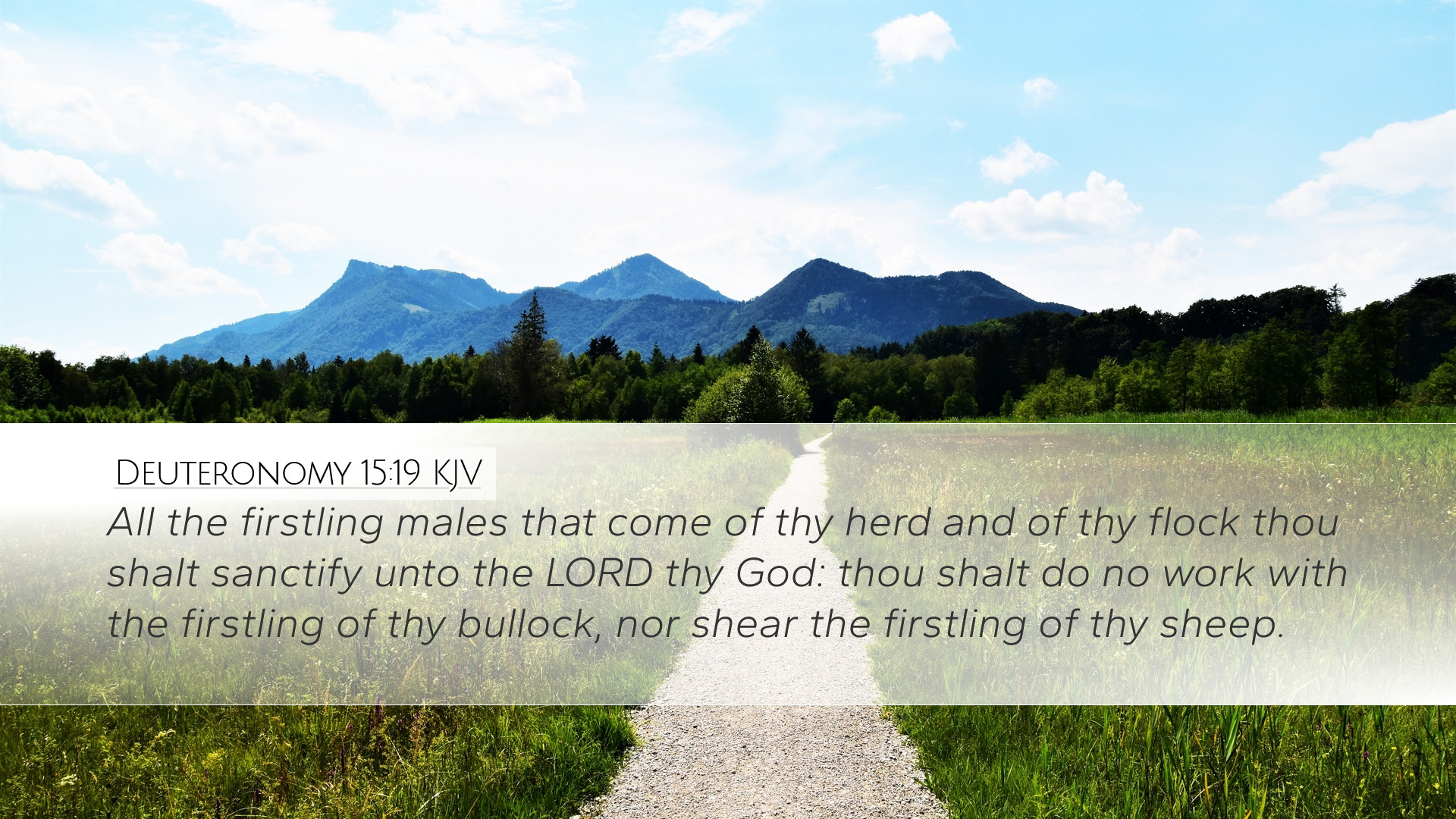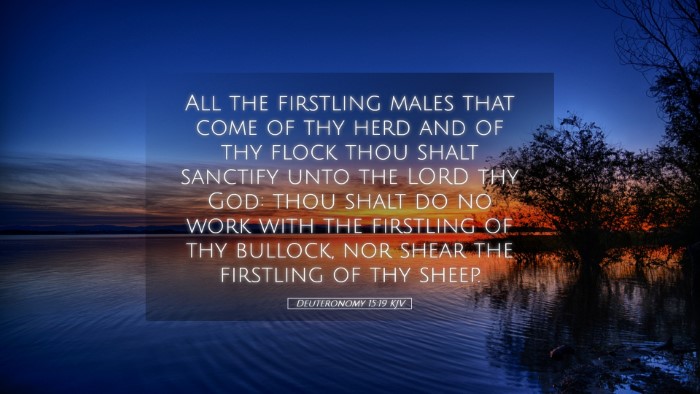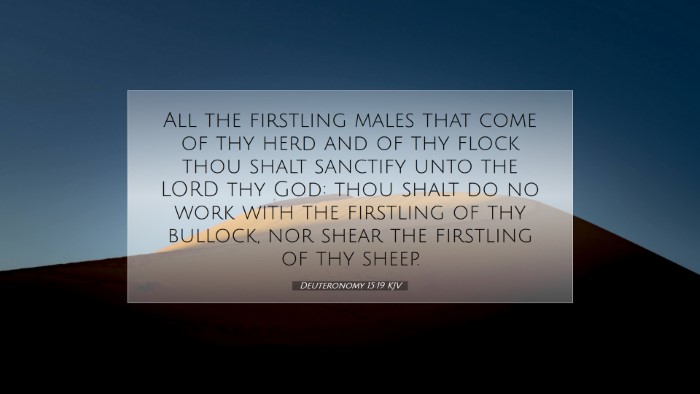Commentary on Deuteronomy 15:19
Verse Reference: Deuteronomy 15:19 - "All the firstborn males of your herd and flock you shall dedicate to the Lord your God. You shall do no work with the firstborn of your herd, nor shear the firstborn of your flock."
Introduction
The passage in Deuteronomy 15:19 emphasizes the significance of the firstborn animals in Israel's sacrificial system and their dedication to God. It reflects the broader themes of gratitude, devotion, and the recognition of God's sovereignty over creation. The context of this command is crucial as it highlights the proper response of believers to God's blessings and the importance of prioritizing God's will in personal and communal life.
Expository Insights
This command is noted by Matthew Henry as an integral part of the Levitical law, providing stringent guidelines for the Israelites regarding their agricultural practices. The firstborn animals were considered holy, set apart for God, and served as an atonement for the people. In this way, the Israelites were reminded of their redemption from Egypt, where the firstborn were struck down during the final plague.
Significance of the Firstborn
- Divine Claim: The idea of setting apart the firstborn males emphasizes the principle that all things belong to God. As noted by Albert Barnes, the first portion of one's livelihood must be entrusted to God, serving as a reminder of His provision and grace.
- Symbol of Redemption: Adam Clarke elaborates on how the firstborn symbolizes Christ, the firstborn of all creation. This typological interpretation extends throughout scripture, linking the Jewish sacrificial system with the New Testament revelation of Jesus' sacrifice.
Theological Implications
The theological implications of Deuteronomy 15:19 can be manifold:
- Devotion to God: The requirement to dedicate the firstborn serves as a continuous reminder of the believer's devotion. As indicated by Henry, this act must be performed with sincerity and purpose, affirming that one's resources are at God's disposal.
- Holiness of Offerings: The subsequent prohibition against using the firstborn for labor or shearing can be interpreted to mean that time and resources dedicated to God should remain holy and untarnished. This reflection on holiness connects deeply with the spiritual life of the believer, urging integrity and purity in worship.
- Community Instruction: This law was not just personal but communal, urging the people to bring their offerings together, thus fostering a community lifestyle centered around gratitude towards God. Barnes points out that obedience in these matters cultivates a sense of unity among God's people.
Lessons for Today
The teachings derived from this verse resonate with contemporary Christian living in several ways:
- Prioritization: It's essential to prioritize giving God our first and best, whether that pertains to time, talents, or finances. The practice of setting aside the first fruits reflects a biblical principle illustrated throughout both the Old and New Testaments.
- Living Sacrifices: Reflecting the New Testament teaching in Romans 12:1 about being living sacrifices, Christians are called to dedicate their lives to God. Clarke notes that this dedication demands a continual act of surrender and re-evaluation of one’s priorities before God.
- Gratitude in Adversity: Acknowledging God’s provision, especially during difficult times, can provide believers with strength and hope, allowing them to see their struggles as opportunities to reflect on God's faithfulness.
Conclusion
In conclusion, Deuteronomy 15:19 serves as a significant reminder of the importance of dedicating our best to God, understanding that everything we possess is a gift from Him. The involvement of the firstborn in sacrificial practices establishes a framework for recognizing God's sovereignty, grace, and the call to live a life that is fundamentally different — marked by commitment, holiness, and love for others. As leaders, students, and scholars engage with this text, may it inspire deeper devotion and practical application in their spiritual journeys.


